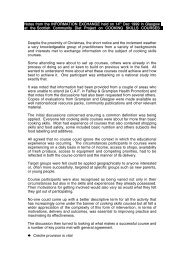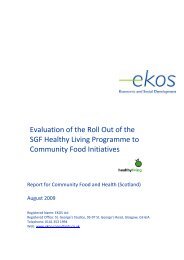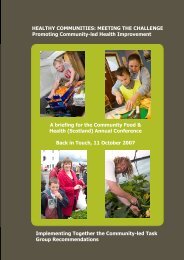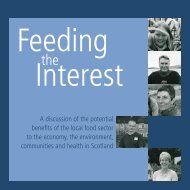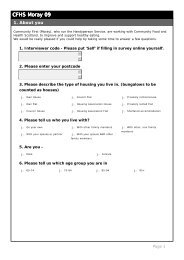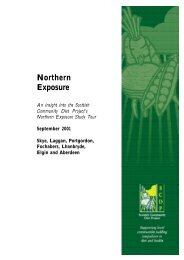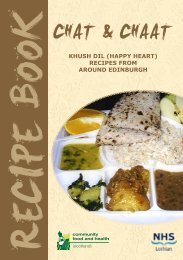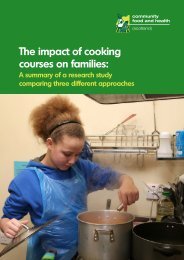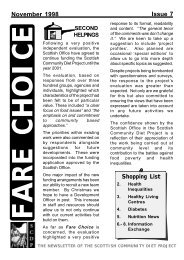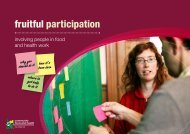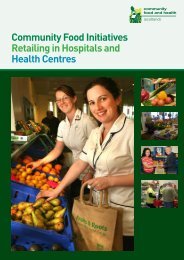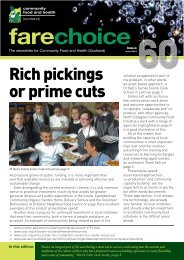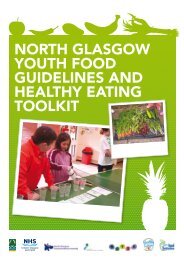Making a Difference - Community Food and Health
Making a Difference - Community Food and Health
Making a Difference - Community Food and Health
You also want an ePaper? Increase the reach of your titles
YUMPU automatically turns print PDFs into web optimized ePapers that Google loves.
Evaluation<br />
At the outset of the project the initiative had developed a very simple tool for evaluation,<br />
recognising later that it was lacking in some important elements. Although feedback from<br />
the activity was overwhelmingly positive, its approach needed to be more systematic.<br />
Being involved in the Self Evaluation Collaborative gave an opportunity to further develop<br />
the project by taking a more systematised approach with a clearly defined overall aim, a<br />
set of clear outcomes <strong>and</strong> indicators <strong>and</strong> a variety of ways of gathering information about<br />
indicators.<br />
Discussion<br />
Kenny posed the group some questions to kick start the discussion:<br />
How do you decide what you can deliver <strong>and</strong> How are you going to get others to<br />
recognise the difference you make<br />
Participants emphasised the importance of exploring local need so that the activities are<br />
right for the communities you work with. In order to have the capacity to facilitate similar<br />
activities it is really important to have a range of delivery partners working together. All<br />
agreed that getting parents involved can be a challenge for various reasons. Kenny spoke<br />
about parental involvement with the <strong>Food</strong> Dragons <strong>and</strong> its unexpected knock-on effect:<br />
getting parents leading <strong>and</strong> involved in other nursery activities, take up of training<br />
opportunities, <strong>and</strong> increased employment prospects.<br />
It is important to consider <strong>and</strong> embed evaluation processes before you start so that you<br />
can track learning <strong>and</strong> skills before, <strong>and</strong> what has been developed during, <strong>and</strong> after, the<br />
activities. This can inform how you work with different groups <strong>and</strong> what works for them,<br />
how you might develop <strong>and</strong> change programmes, as well as gathering information <strong>and</strong><br />
evidence about the impact of activities. Having this information is important for getting<br />
others to recognise the difference your work is making <strong>and</strong> sharing effective practice.<br />
Participants also touched on what they had heard earlier in the morning about measuring<br />
outcomes, particularly in the long term. In relation to delivering on priorities this centred on<br />
how confident they are of their ability to cope with what appears to be quite complex<br />
outcome frameworks. This is a real challenge for many. The group expressed their<br />
underst<strong>and</strong>ing in that they do not feel they have been asked to do anything different but<br />
need support to reduce their anxieties about translating the language of outcome<br />
frameworks at ground level. They felt aware that evidence of impact will be needed to<br />
secure funding <strong>and</strong> pursue sustainability, but they require guidance on how to demonstrate<br />
this effectively <strong>and</strong> meaningfully.



